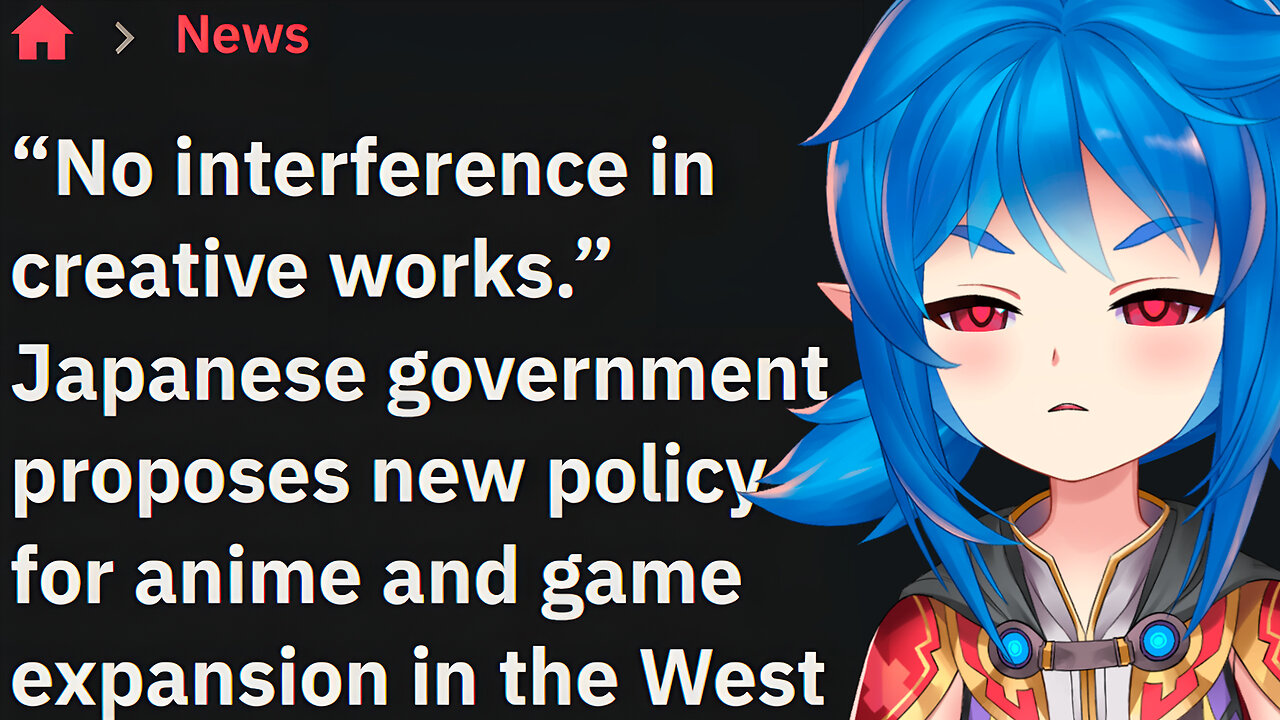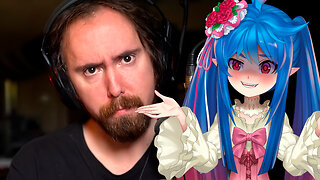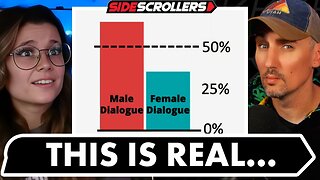Premium Only Content

This is pretty bad actually
Original article: https://automaton-media.com/en/news/no-interference-in-creative-works-japanese-government-proposes-new-policy-for-anime-and-game-expansion-in-the-west/
Support me ♥ https://www.patreon.com/leaflit
Watch me ♥ https://www.twitch.tv/Leaflit
Kick me ♥ https://www.kick.com/Leaflit
Follow me ♥ https://twitter.com/LeaflitVT
See me ♥ https://www.tiktok.com/@leaflitvt
Discord ♥ https://discord.com/invite/leaflit
TTRPG ♥ https://rpg.angelssword.com/
MERCH ♥ https://shop.angelssword.com/
In this video, I react to an Automaton Media article about Japan’s new proposed policy saying there should be “no interference in creative works” when exporting anime, manga, and games to the West. On the surface, this sounds amazing—no more localization censorship, no more “fixing” character designs, no more changes made just to please Western sensibilities.
But there might be a problem.
If the West refuses to import Japanese works that don’t fit their cultural guidelines, wouldn’t that pressure Japanese creators to censor themselves at the source?
We’ve seen this before:
Dragon Quest III’s remake controversy, where design liberties caused backlash.
Shadowverse’s global release, which censored several cards (like adding shorts to characters’ designs).
In Shadowverse: Worlds Beyond, the “uncensored” Japanese version doesn’t even exist anymore—there’s just one global build, and it’s the censored one.
So while the new policy could protect Japanese creativity, it could also lead to the exact opposite if Western platforms refuse to host unedited versions.
I’ll be discussing both the potential benefits and hidden risks of Japan’s “no interference” approach, why modders and fan subbers have become the real guardians of authenticity, and what this might mean for future anime and game localization.
The positive side:
Japan is formally acknowledging the problem of Western censorship, This could protect creative freedom for anime, manga, and games.
If Western distributors reject “uncensored” works, Japan might self-censor preemptively to ensure market access.
Example: Shadowverse: Worlds Beyond losing its uncensored Japanese version entirely.
Cultural clash issue:
Western media often imposes its values on Japanese art styles, character designs, and narratives.
The question isn’t just “should Japan resist?” but “can they afford to?”
Fans have historically preserved unaltered versions through mods, fan translations, or reuploads.
This policy might complicate that if Japan decides to unify releases under global censorship rules.
The policy is a step in the right direction—creative freedom matters.
But Japan must ensure that it doesn’t become a self-censorship trap just to stay marketable overseas.
Japan no interference in creative works policy reaction, Japanese government anime censorship, Leaflit reacts to Automaton article, Shadowverse Worlds Beyond censorship, Japanese games localization censorship, Dragon Quest 3 remake controversy, anime export policy Japan 2025, no censorship in Japanese media law, western censorship of Japanese works discussion, Leaflit reaction Japan policy, Leaflit reacts, Japanese government censorship policy, anime censorship reaction, Automaton article reaction, Japan no interference in creative works, Shadowverse censorship, Dragon Quest 3 remake controversy, western censorship of Japanese games, anime localization critique, Leaflit gaming discussion
If you are the owner of the original video and you want this video removed, please contact: [email protected]
#gaming #vtuber #reaction
-
 39:58
39:58
Leaflit & Asari Official
3 days agoThey tried hiding like RATS
231 -
 1:02:57
1:02:57
ZeeeMedia
19 hours agoVaccines, Transhumanism & the Hidden Agenda ft. Dr. Suzanne Humphries | Daily Pulse Ep 152
13.1K46 -
 15:42
15:42
Nikko Ortiz
16 hours agoPublic Freakouts Caught On Camera...
71.8K23 -
 9:55
9:55
MattMorseTV
19 hours ago $17.13 earnedTheir ENTIRE PLOT just got EXPOSED.
20.6K84 -
 1:55
1:55
Dr Disrespect
2 days agoPeak Focus. No Crash. This Is KENETIK
21.8K9 -
 2:06:36
2:06:36
Side Scrollers Podcast
20 hours agoThis is the Dumbest Story We’ve Ever Covered… | Side Scrollers
76.4K22 -
 15:37
15:37
The Pascal Show
19 hours ago $8.72 earnedCANDACE OWENS DISAPPEARS?! Candace Owens Goes Into Hiding After Revealing A**assination Claims
23.6K12 -
 18:05
18:05
GritsGG
1 day agoThis Duo Lobby Got a Little Spicy! We Have Over 20,000 Wins Combined!
34.2K -
 1:12:29
1:12:29
PandaSub2000
3 days agoSonic Galactic | GAME ON...ly! (Edited Replay)
31.2K6 -
 21:23
21:23
Neil McCoy-Ward
20 hours ago🚨 While You Were Distracted TODAY... (This Quietly Happened!!!)
25.9K13